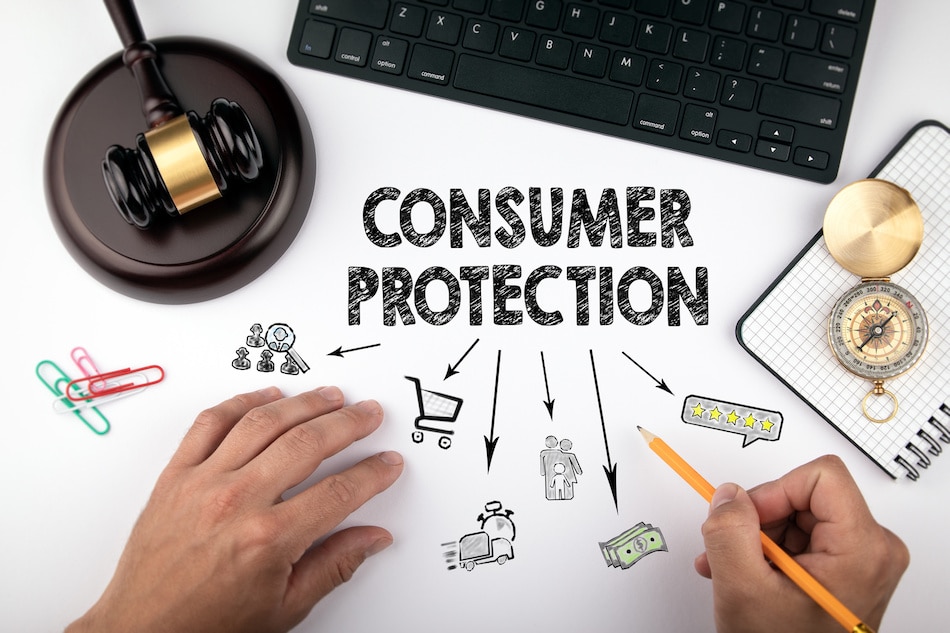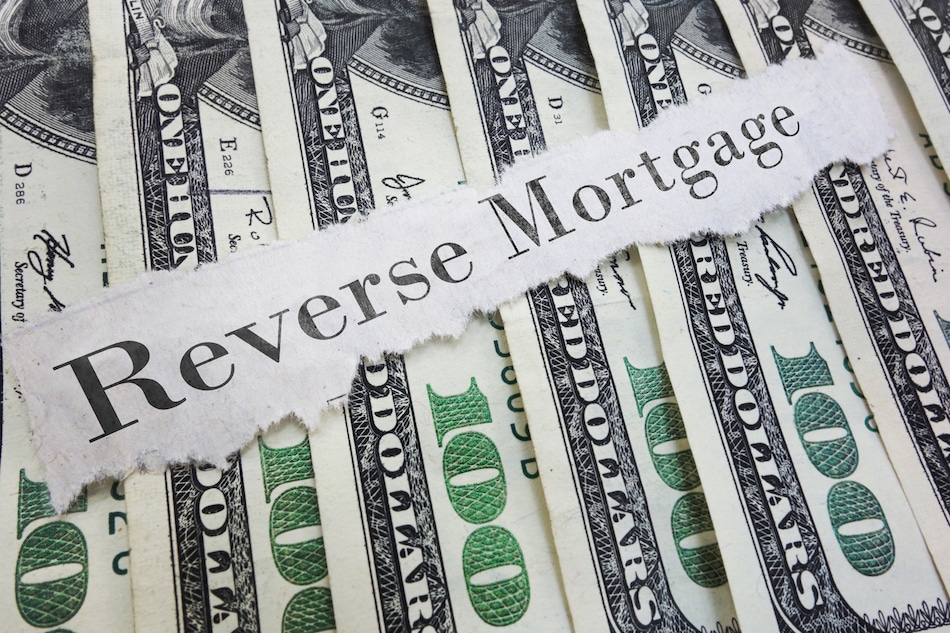The Big List of Real Estate Scams, Fraud, and Misleading Tactics
The Big List of Scams and Misleading Tactics in Real Estate: Tips for Protecting Home Buyers, Sellers, Owners, and Renters
 Buying, selling and owning real estate, including homes, are often the most expensive transactions many individuals and households will undertake in their lives. Hundreds of thousands of dollars can be involved, attracting dishonest tricksters and scammers who may wish to take advantage of those involved.
Buying, selling and owning real estate, including homes, are often the most expensive transactions many individuals and households will undertake in their lives. Hundreds of thousands of dollars can be involved, attracting dishonest tricksters and scammers who may wish to take advantage of those involved.
Why are even the most diligent and intelligent of people susceptible to being scammed in real estate related deals? It is human nature for us to want to make the most out of any transaction, so we may have a tendency to want to trust those with whom we are working. There are also other reasons real estate scams are successful. One is that real estate has a language of its own, automatically putting the many home buyers, sellers, or owners at a disadvantage if someone attempts to mislead them. If a person doesn’t fully understand terms like escrow, reverse mortgage, security deposit, contingency, and others it can lead to confusion and even purposely being taken advantage of.
The possibility of being scammed is increased by the fact that most get involved in real estate transactions relatively infrequently throughout their lives. This leaves them inexperienced and vulnerable to those wishing to take advantage of them.
Those involved in a real estate transaction can better protect themselves by increasing their awareness of the various scams being perpetrated. They should trust their instincts and remember that if something appears to be too good to be true, it probably is. Another key to avoiding scams is to only use reputable professionals with whom to assist in the process.
Whether you are a buyer, seller, owner, or renter, understanding common real estate scams, how to separate fact from fiction, and what you can do if you get caught up in one can help you protect your hard-earned money. It’s also important to understand that these situations aren’t the norm—a good dose of skepticism is often helpful, but being fearful to the point of avoiding any kind of transaction can be harmful in its own right.
Table of Contents
- Real Estate & Home Buyers
- Wire Transfer Scam
- Predatory Real Estate Loans
- Home Inspection Scams
- Home Mortgage Scams
- Real Estate Title or Deed Fraud
- Protecting Home Buyers: What Should be Done?
- Real Estate & Home Sellers
- Fake Real Estate Representatives
- “Alternative” Real Estate Buyers
- Cash for Homes
- Unsolicited Offers to Buy
- Bogus Real Estate Investment Seminars
- Moving Scams
- Protecting Home Sellers: What Should be Done?
- Current Homeowners
- Loan Modifications or Foreclosure Assistance
- Home Improvement Scams
- Unsolicited Offers for Repairs or Improvements
- Protecting Homeowners: What Should be Done?
- Renters & Landlords
- Fake Rentals & Craigslist Advertisements
- Amenity Lies & Exaggerations
- Tips for Rental Property Owners
- Protecting Renters & Landlords: What Should be Done?
- Senior Citizens
- Staying Informed and Alert
Real Estate & Home Buyers
It is natural for someone buying real estate to look for the best deal through each step of the process. This can lead to scams involving mortgages and predatory lending, wire transfers, title and deed fraud, home inspection scams and more. “Buyer beware” may never be more important than when buying real estate.
Wire Transfer Scam
One currently growing, and extremely costly real estate scam buyers need to be aware of are real estate wire transfer scams. This is one area of fraud that is defrauding buyers out of tens of thousands of dollars in down-payment funds. This scam is dangerously effective for several reasons. The scam can appear to be absolutely legitimate while using email technology to cheat buyers out of significant amounts of money.
The wire transfer scam may begin with the scammer gaining access to the information of a vendor involved in the closing of a property. The vendor could be the home buyers title company, lender or real estate agency. However, the scammer may not even need to get access to their computers – they may only require some knowledge about the employees who work there; such as their names, titles and email addresses.
Once the scammer determines those involved in an upcoming closing, they will send the home buyer an email with wiring instructions for the down payment. This email will actually look like it’s coming to the home buyer from either escrow, the title company, the lender or even the buyers real estate agent. This fake email uses a method called email spoofing. Email spoofing is the forgery of an email header so that the message looks like it came from someone or somewhere other than the actual source. And since the email looks as if it’s coming from a legitimate source, the home buyers will frequently follow the fraudulent instructions and then use the scammers wiring instruction to send the money. Unfortunately, by the time those involved realize what has happened, both the scammer and the funds are gone.
While this scam can be difficult to identify, there are some signals to watch for. Emails that are sent outside of normal business hours for example, or that contain poor grammar or misspellings. Red flags should go up if payment methods change to a wire transfer at the last minute. Look to see if the email address is the one you have been working with (ex. example@companyname vs example@thecompanyname) in the past or during the home buying process.
Those involved can also take steps to better ensure communications can be trusted. Encrypted email, verified phone numbers, confirmation of instructions and even pass codes or PIN’s can be used. Buyers need to be very diligent about validating the transfer of any funds during a real estate transaction and question even what may appear to be messages from a genuine source.
An easy way of verifying wire instructions is to call the escrow or title company directly to confirm the wire instructions. Be sure and speak to someone who can repeat and verify the instructions as well as a few of the transaction details. This will help confirm that you are speaking to a legitimate person involved in the transaction. However, be sure and call a legitimate telephone number. Scammers will often include telephone numbers in the spoofed email that, when called, are directed to the scammers that then may pose as the employees named in the email.
Predatory Real Estate Loans

Predatory real estate loans are those that have unfair or even abusive loan terms placed on the borrower. Predatory loans often use deceptive practices in convincing a borrower to take out a loan that the borrower may not need or want. In some cases, predatory loans involve coercive and unscrupulous practices in an effort to get a borrower to get a loan they may not be able to afford. Common characteristics of predatory loans are that they often have high-interest rates, inflated late and other fees as well as rigid terms. The challenge is that predatory lending may not always be illegal.
A consumer’s ability to secure a mortgage at fair market interest rates will depend on several factors. These include the borrowers credit rating, income and job history, down payment amount, loan to value ratio and more. For those borrowers with damaged credit or who don’t have a significant cash down payment, “risk-based” loans may be the most accessible pathway to home ownership. These loans are sometimes known as Direct Loans and can have their place in legitimate lending if interest rates and terms are affordable and if the borrower is fully aware of the terms.
There are specific characteristics to watch for with predatory real estate and home loans. For starters, a lender may guarantee approval to anyone. Borrowers are often rushed to sign loan papers, as real estate transactions can often be all about timing and action. Some predatory loans will have life insurance or other coverage included in the loan. There may be loan prepayment fees or other unfair penalties included in the loan.
However, in most cases, the biggest factor in predatory lending are the very high-interest rates and fees on the loan. These can make the payments very high which makes keeping the payments current difficult, if not impossible. And, in most cases, the loans are tied to the property by way of a lien, so the lender can take ownership of the property should the loan go into default. Falling victim to a predatory loan can put a borrower deep into debt, could damage their credit rating and potentially end up with nothing to show for it.
Home Inspection Scams
Home inspections are quite valuable in helping home buyers determine any hidden or unseen problems in a home. Their value, however, will be minimal if the home inspector isn’t qualified, doesn’t conduct a full inspection or is only looking to make a quick buck. Like most scams, home inspection scams are rooted in a lack of integrity. Home buyers, however, can arm themselves with enough knowledge to lower the chances of being taken advantage of.
A home buyer, for example, may only get a cursory visual inspection when they believed they were getting a full, detailed inspection. So inquiring about an inspector’s experience and background is crucial – BEFORE the inspector is hired. Often, real estate agents may recommend one or several home inspectors. While the majority of the recommended inspectors will probably turn out to be good or excellent inspectors, home buyers should do their own research and feel comfortable with their own decision. Specialty inspections should be handled with even more care. Let’s say you’re in the market for a lake home for sale in Minnesota that has a dock attached to the main structure. You’d need to find a qualified inspector that can give an honest opinion of that kind of home addition.
Another home inspection scam involves hidden or added fees. A home inspector may pitch a low price at first, but – by the end – the buyer could quickly find themselves paying double of what they were originally quoted.
For peace of mind be sure to choose a home inspector with experience and a solid reputation. Make sure they understand that a full, detailed written inspection is what is being requested and ask if they guarantee their findings. They should also carry Errors and Omissions insurance in case they miss something in an inspection report that ends up costing the buyer money. In many states, home inspectors must be certified and licensed in the states where they operate. In those states, make sure the inspector is properly licensed by checking on the states website or contacting the state agency that regulates home inspectors.
Home Mortgage Scams
Instincts, research, and knowledge can help potential home buyers avoid being caught up in mortgage scams, but even diligent consumers can become victims. Mortgages can be complex and challenging to understand and this complexity can cause confusion. Many mortgage-related scams have been around for years but have evolved as consumers become more informed and home buying technology has advanced.
One more common mortgage scam is a version of the old “bait and switch”. A home buyer may be attracted to a lender by promises of a guarantee of loan approval, low-interest rates or no closing costs. Once applying and then closing on the loan, the home buyer may discover that their interest rates have increased or they don’t qualify for certain benefits. This is a scam in that the lender advertises these extremely low rates and no closing costs knowing just a few, very well qualified borrowers will be able to take advantage of them. The majority of borrowers will not.
Some unscrupulous lenders will offer an attractive rate but there may be a large non-refundable upfront loan fee or deposit. If the lender changes the rate through the loan process, the borrower may be forced into accepting the higher rate or losing their deposit.
Another form of mortgage fraud involves over-appraising the value of a home in order to increase the amount of funds available to a homeowner. While this may sound appealing, it can place a buyer in unwieldy unnecessary debt. In addition, should home values drop, borrowers can quickly find themselves “underwater” or “upside down” in their loans, owing more than the home is actually worth.
Buyers can help avoid mortgage scams by better understanding the mortgage process and working only with reputable lenders. There are mortgage products designed to help less-qualified borrowers get funding for a home, but like any mortgage, borrowers should be clear about the fees, rates, and terms of such loans.
Fortunately, with the passage of the Fraud Enforcement and Recovery Act of 2009 (FERA), home lending and mortgage fraud has dramatically decreased from before the legislation was passed. However, as with all laws meant to protect consumers, scammers will find a way around the rules, so home borrowers should always be diligent about their loans, ask questions and read the material and loan documents before signing.
Real Estate Title or Deed Fraud
Title or Deed fraud in real estate is a slow-roll scam that is a form of identity theft. It can put a property owner in the position of not actually owning property they may have thought they owned for years.
To understand the title and deed fraud, it helps to know that every state requires written proof of ownership, usually in the form of a deed. A deed will contain a number of details including the type of deed, the owner, the buyer and the willingness of the owner to transfer the property. It will also contain a detailed description of the property, and signature of the grantor (seller) which is usually validated by a notary. Deeds are usually transferred hand-to-hand, but many states now allow for them to be recorded electronically so the buyer is assured the deed has been transferred. Recording the deed, usually in the county where the property is located, also verifies the chain of ownership.
Deeds can be subject to fraud or forgery in a variety of ways. It could be signed by someone posing as the grantor (seller) and notarized by an unscrupulous notary or one who didn’t properly identify the signer. Or someone could even pose as a representative of the grantor. Scammers have been known to gain access to deeds by misrepresenting themselves or through theft of a deed.
The problem of title and deed fraud is aggravated by the necessity of public records and the potential for identity theft associated with those records. Vacant and unused properties tend to be at most risk. Victims include the original owner and innocent third party buyers. It is why county recorders, notaries and diligent owners play such an important role in real estate transfers.It is also why a title search and title insurance – verifying the validity of a deed – is critical in any real estate transaction.
Protecting Home Buyers: What Should be Done?
What can a home buyer do to protect their interests and minimize the risks of being scammed or misled in a real estate transaction? You can begin by becoming better aware of the types of scams targeting real estate buyers. Surround yourself with trusted, experienced professionals who conduct successful transactions on a daily basis. These people could include real estate agents, mortgage lenders or those in the escrow or title business. These individuals should be able to guarantee their services and back it with errors and omissions coverage. Be cautious about unsolicited “assistance” and mortgage-related offers from strangers or people who you have just met.
Furthermore, remember that not everyone seeking a mortgage loan may qualify for the best interest rates and loan terms. Many home buyers with less than stellar credit may have to find lenders in a secondary market where rates may be higher and terms less favorable. However, the services and mortgage loans of these legitimate lenders doesn’t necessitate that a scam or predatory lending is taking place. Often, lending terms are simply a reflection of the borrowers credit history and loan worthiness.
Fraud and forgery are criminal activities that should always be reported. There is usually some sort of recourse for those who have been genuinely scammed. The most frequent exception however is where wire transferred funds are involved. Be extremely careful in this area. A combination of knowledge, caution, and diligence can go a long way in protecting buyers through their real estate experience.
Real Estate & Home Sellers
Sellers can be faced with an array of challenges when selling a home or real estate. Not only are individual buyers in search of a good deal but there are professional buyers looking to take advantage of desperate or uninformed sellers. There are fake real estate agents and phony loan officers of which to be wary. While some of these tactics may not necessarily be illegal, sellers need to be aware of the challenges they may face when selling a home.
Fake Real Estate Representatives

Sellers can be scammed by those posing as real estate professionals who may not be who they seem to be. They may not even be licensed real estate agents at all. Even legitimate, licensed real estate agents may still exaggerate their experience, skills and sales history.
Any seller who is approached by an agent or who is attempting to secure the services of a professional should first verify that an agent has a valid license in the state where the property is located. This can unusually easily be done by accessing the states website that handles the licensing of real estate agents. Potential home sellers can also verify the length of an agents experience and their credentials with the agent’s broker. Claims of an agent’s sales prowess and experience can also be verified by many online websites such as Google, Yelp, Angie’s List or the BBB. There are also real estate websites where former clients of the agent leave testimonials or comments about the agent and their service.
Fake representatives of lending institutions might also appear to a home or real estate seller. A scammer posing as a mortgage or lending officer may convince a seller that they have a buyer for the property. They may then ask for and obtain the sellers personal information – such as the sellers bank account information, in order to “wire” them the proceeds from the fictitious buyer. They may then use the sellers banking information to empty their bank accounts.
If a real estate agent or loan officer seems less-than-forthright about their background or experience and are unwilling or unable to verify licensing, it’s likely time to move on.
“Alternative” Real Estate Buyers
Many sellers have seen ads or may have received postcards promising to buy their home for cash in just days. Though some may be legitimate, some are not. Many have no intention of buying your home themselves. Instead, they will take your information and then sell your personal information to those who are actually willing to pay cash. By going through these “middlemen” you are not only exposing your personal information to others you may not wish to have it, but are also sharing information about your home.
Some of these individuals or companies may promise a quick cash sale but ask for sellers to sign an option or lock-out agreement. This gives them exclusive rights to sell the home. You may think this agreement will facilitate a quick deal but instead it prevents you from selling the home on your own. In some cases, this can be legitimate business practice as companies are also looking to protect themselves and be compensated for the time and work they put into your sale. But sometimes it can then take months or longer to complete a sale, and you’re locked in, committed to them during that time. In some cases, some “buyers” will request a fee to process the sale. Note that in many states, any individual selling real estate must be licensed by the state.
Sometimes, offers will be reduced significantly as the closing date nears. Sellers may feel obligated or that they have no other option but to complete the deal. These are scam-like tactics that sellers may back away from.
This is not to say there aren’t legitimate companies willing to buy your property promptly—there are. They do, typically, purchase a property and then resell it for a profit, but this lower purchase-price option could be the ideal situation for some sellers looking to sell extremely quickly. As a seller, you should make sure they are not just reselling your data and are real buyers. Fake buyers dip into your profits and may actually delay its sale. In this case, it is an instance of “seller beware.”
There are now, with more on the way, companies that will offer to buy your home for cash – without the use of a real estate agent or having the home “go on the market”. Many of these companies have received large of amounts of venture capital funding in which to buy, and then sell the homes. Most have detailed websites explaining the details about their particular home buying procedures. In addition to these venture capital funded companies, several large national brokerages are now offering the service of buying homes directly from the seller without the need of placing it for sale to the general public.
Home sellers should look at all of their options when selling their home or real estate, including the use of a traditional real estate agent. Home sellers should ask for a “net proceeds” calculation from both the traditional agent and from the companies offering to purchase the home. An estimated net proceeds calculation will give the seller the approximate amount of money they will receive after the sale. The net proceeds from a sale are defined as the net amount of cash received after ALL commissions, fees, repair costs, loans, mortgages and closing costs have been deducted from the sales price. This net amount can then be used to help make a decision as to which company or agent will bring the seller the most money after the sale is completed. Sometimes, fees may exceed what sellers might expect to pay, rendering their “bargain” option less lucrative than they were lead to believe.
Cash for Homes
Closely related to fake buyer scams, “Will buy your home for cash” offers may range anywhere between legitimate, misleading, and scam. You may have seen the signs on telephone poles or street corners. “We buy ugly houses” and “We pay cash for homes” are variations on the same theme. They might send out targeted mailers like “We’ll buy your Sartell home for sale for cash”. The marketing campaigns may be crude but for those without the money to fix up a home, are behind in payments or taxes or who may be getting a divorce, the message can be appealing; a quick cash and a no-nonsense sale.
Should you call that number on the sign, you will likely be asked for an appointment to evaluate your home. One of the first questions you’ll be asked is if the home is owned outright or what balance remains on the mortgage. This is so that the cash buyer can quickly calculate how much money the seller could walk away with and entice the distressed seller with the promise of cash after the deal closes. Since it is the goal of these buyers to buy the home for as little as possible, sometimes 50-60% of its real value, sellers often receive much less than they would have has they placed it for sale through a real estate agent. Though the sellers can get their money much faster through this method, the equity that was in the home is lost forever.
Home sellers that are considering a cash for homes buyer, then its best to choose a company with an office, website and a successful history of buying a home for cash. Avoid individuals who aren’t worried about their reputation and move from deal to deal. Make sure you fully understand what their final, concrete cash offer is compared to the true value of your home. For those facing divorce, bankruptcy or other time-sensitive issues, a company who pays cash for homes may not be a perfect choice but could be a viable option. Just be aware of the long-term costs involved and the price you are truly paying for convenience.
Unsolicited Offers to Buy
Even those who have no intention of selling their home could be susceptible to a real estate scam involving unsolicited offers to a buy a home. Most frequently, these offers come in the form of a short note or postcard with verbiage that will explain how the buyer is interested in a property and can pay cash quickly. They will usually include the willingness to pay a “fair price”. What is fair to them, however, may not be fair to the seller.
Homeowners who receive these notices often fall into one of two categories. They live in a desired neighborhood or community where homes are sought after or they may be behind in property taxes, facing bankruptcy, divorce or may have been unsuccessful in selling a home through a real estate broker.
Many of these buyers are, in essence, throwing out fishing nets to see if they can find an owner who doesn’t understand the real value of their home or an owner that wants to sell quickly at (almost) any cost. These buyers are hoping to find someone who may be on the verge of listing a home but who doesn’t want the hassles. They may be facing a personal situation that is forcing them to consider selling a home. These buyers are often hoping to find sellers willing to sell at 70% or less of a home’s market value. Keep in mind that this is often totally legitimate — the goal here is to simply understand what you may sacrifice for convenience.
Unsolicited buyers may also be home flippers. These flippers are willing to buy the home for a low value and then put money into upgrades and repairs with the a plan of reselling the home for a profit. Or they may be in a position to pay cash now, list the home traditionally, and pocket any difference. Before selling through an unsolicited offer to buy, a seller should know the real value of a property. Most often sellers will do better selling through a real estate brokerage, but – similar to “cash for homes” – the timing and reduced hassle may make this a desirable offer. If you don’t mind waiting and would like to get the full value for your home, however, it typically pays to explore all of your options.
Bogus Real Estate Investment Seminars

Real estate seminars take place across the country, seemingly weekly. They use radio, television and online ads to lure people in with promises of quick riches made through buying and selling real estate. They discuss how your current real estate market is “perfect” for flipping real estate, whether the market is a sellers or buyers market. They also always happen to have a few seats left that are available for free. They will often tempt participants with a sales pitch for how easy it is for someone to use their system to make a lot of money with little investment and not much time.
While real estate seminars boast of potential riches for their participants, they are frequently designed to make money for those presenting them. They do this through the sale of their own tapes, videos, books, additional online or in-person training and more. These seminars may begin by showing participants how to obtain credit cards with large cash availability and lines of credit. This done so the participants can eliminate the cost barrier objection to buying their future real estate investments, as well as having the money to pay for all of the “educational” programs soon to follow. The bottom line is that much of what is taught by these “systems” can be found online, in a book or through a local real estate professional.
Those attending such seminars should test the validity of any basic principles before purchasing additional materials. Seminars are designed to reach attendees emotionally, telling them how special they are just for attending and encouraging them to take the next step.
There are a lot of ways to invest in real estate, and there are people that like to legitimately educate people on those methods. Not all real estate seminars are potential scams. Simply keep an eye out for people promising they can teach others how to get rich quick. Check the validity of the speaker and their potential real estate investment method by searching for online reviews or testimonials. Ask local real estate agents, current real estate investors, or those involved in the mortgage or banking industry what their opinions might be about the seminar and speaker.
Moving Scams
Moving is often a hassle, which is why hiring a moving company can be so appealing. Especially if you’re moving across the country to your home in Rochester. However, if the person who is moving isn’t careful, using a mover can create even more hassles and financial loss.
Problems, including potential scams and misunderstandings, often occur with out-of-state movers. This is because moving fees are often roughly estimated and can be expensive. Once a move is taking place, a moving company can often decide that they underestimated the amount of furniture and boxes and didn’t charge enough. Unfortunately, in some cases, and depending on the contract (if there was one), they may have the ability to hold your furniture and personal possessions hostage until the higher rate is paid.
This additional payment required issue can be prevented by making sure any moving company you use is registered and insured as well as by checking online reviews. It could be a serious mistake to base the choice of a mover on price only. Whereas another way to avoid the problem is to maintain control of the possessions. This can be accomplished by renting and driving the moving truck yourself, and only paying labor on both ends of the move to pack and unpack your items.
Before making a long-distance move, familiarize yourself with the professional mover process. Learn the costs involved and common elements of an agreement. Read any agreement fully and understand its covenants before signing it. Taking a little extra time and using more caution upfront can prevent serious headaches later.
Protecting Home Sellers: What Should be Done?
Sellers can improve the chances of a successful real estate experience by surrounding themselves with trusted, experienced professionals, and by verifying proper licensing, credentials and claims of success. Know who the buyer actually is and understand that there are unscrupulous individuals who want to turn your hard-earned equity into their gain.
That is not to say there is no value in unsolicited or cash buyers. They can play a role in specific situations, and real estate seminars may elevate understanding of the real estate process. Savvy sellers just need to understand why and how these real estate programs function.
Current Homeowners
While homeowners aren’t the most targeted group when it comes to scams, there are a few out there that they should be aware of. Home ownership is an ongoing process that requires constant home upkeep to keep and build value, that includes continuing mortgage payments, tax payments, repairs, and upgrades. Because of today’s stricter loan requirements and larger down payments, most homeowners have equity in their home the moment they take possession. This leaves current homeowners at risk of real estate scams in a variety of ways.
Loan Modifications or Foreclosure Assistance
Homeowners struggling to maintain their mortgage payments or who may be upside down in their mortgages are susceptible to a variety of loan modification and foreclosure help scams. These could not only result in the loss of a home but possibly leave the homeowner still financially responsible for the mortgage after leaving the home.
Because mortgages, refinancing and the foreclosure process can be so complex, the average homeowner usually seeks help and guidance when faced with these issues. However, they may be offered assistance that is fraudulent or not in their best interest. Homeowners need to be aware of shady foreclosure counselors, costly leaseback programs, fake loan auditing, bait and switch tactics, and even fraudulent “government” loan modification programs.
Scams involving current homeowners include foreclosure “counselors” or loan auditors that may offer to review loan paperwork and offer advice for an upfront fee. In other cases, financially distressed homeowners may be convinced by scammers to turn over the deed to their home to a leaseback company and pay rent to that company – in order to get out of a mortgage. However, once the transaction is complete, the rent may often be more expensive than the original mortgage. And rather than helping keep a homeowner in the same property, they often lose the home and then cannot afford the rent payments on the home they used to own.
Common loan modification scams involve “assisting” homeowners through the complex process of loan modification. Scammers can be patient, waiting for several meetings before asking homeowners for a significant processing fee. Instead of getting needed assistance, the scammers offer no real help or assistance and the fees are lost. These scammers may even use deceptive websites that look official and use legal-sounding verbiage.
Upfront fees for a loan modification are a sign current homeowners should question and be wary about. Those seeking loan modifications should contact their lender, a government agency like HUD or an attorney who specializes in real estate. Many legitimate loan modification programs either do not require upfront fees or if there are fees, they can often be rolled into the new, modified loan.
Home Improvement Scams

Many homeowners can get caught up in home improvement scams in the routine course of upgrading their homes. While it can be expected and even helpful for home repair or building contractors to suggest an alternative or additional services; when these services or upgrades are not in the best interest of the homeowner, it can be considered unscrupulous.
Homeowners should never be asked to fully pay for a home improvement project upfront and certainly not by “cash only”. An established contractor should be able to take on a project by accepting a “good-faith” deposit, usually either one-half or even less than half the estimated project cost. Final payment should only be required after the project is completed to the homeowner’s satisfaction.
Home improvement scams often include unneeded additional work not requested by the homeowner. They can also include scams by contractors who discover additional “problems” while working on a project. Keep in mind that, unfortunately, some problems in a home project can’t be discovered until work has already begun, so this is why it is important to screen contractors ahead of time. Screening can include online reviews, checking with the local Better Business Bureau and verifying licensing and insurance credentials. It is completely acceptable to ask for references, especially on larger projects. Ask ahead of time about any warranties they may offer on the completed work.
Most home improvement companies and contractors increase their business through repeat customers and client satisfaction. They work hard to maintain a good reputation. Those unsatisfied with the work of a contractor shouldn’t immediately assume they’re being scammed. They should try instead to work through the issues with the contractor before assuming a scam has taken place.
Unsolicited Offers for Repairs or Improvements
Some home improvement “experts” will go door to door, claiming to have just completed a job on a nearby property. They may say they either have extra time or extra materials. This results in what seems like an exceptional price for the homeowner, but just for today. The problem is work or materials are often substandard, and getting in touch with these contractors again may be difficult or impossible.
Many of these scams involve pavement sealing, tree trimming, gutter cleaning or roofing. In the case of roofing, scammers will hit the streets immediately following storms convincing homeowners their insurance may make the repairs cost-free. More recently, solar panels have been added to the list of home improvements that may be subject to substandard work and materials.
There are almost as many ways homeowners can protect themselves from low-quality home improvements as there are scams. Homeowners should never use unsolicited workers who are “in the neighborhood”. Contractors should always be licensed and insured. Ask friends or relatives for referrals or read online reviews. Get estimates and guarantees in writing. Never pay fully for repairs upfront and if possible, pay with a credit card so you have recourse in the event of substandard work. If a homeowner is ever presented with an offer that is good for “today only” or from someone who needs 100% payment in cash upfront, look elsewhere. It is just not worth the risk of being scammed.
Protecting Homeowners: What Should be Done?
The vast majority of scams to homeowners can be prevented by due diligence and from conducting transactions in a business-like fashion. When it comes to loan modifications, the current lender has a vested interest and may be able to directly assist homeowners or at least suggest where assistance can be found. Be wary of loan modification consultants who request a fee upfront.
When it comes to home improvements, only licensed and insured companies with an established reputation should be contracted. Never pay 100% of repairs upfront and especially not with cash. Those interested in the best price on a project should solicit bids from multiple contractors, but make sure each is licensed and bonded. Most of all do not conduct business with transient workers whose only interest may be in getting paid. Use common sense and trust your instincts.
Renters & Landlords
Renters are not immune to real estate scams. In many cases, they may be more prone to fraud, deception, and outright theft. Tight deadlines and sought after properties that may seem too good to be true can contribute to the problem. Scams may involve false advertising, exaggerated amenities and can even involve the moving process. Rental property owners also need to take measures to protect themselves from real estate scams. Whether you are a potential tenant or a landlord, there are areas where you need to be cautious.
Fake Rentals & Craigslist Advertisements

One way in which potential home renters are most vulnerable to being scammed is by responding to fake classified ads for properties that either don’t exist, aren’t available or placed by people that don’t actually own the property. This scam can easily happen for vacation rentals, rentals that are secured when moving from one town to another, or even for well-appointed properties in desired areas. Potential renters may feel pressured into leasing such a property sight-unseen and may be all too willing to wire an application fee, deposit and first months rent to the scammer. And since the scammer doesn’t actually own the rental property, the potential renter ends up with a worthless lease and lost money.
How can a prospective tenant protect themselves? If possible, a rental property should be viewed inside and out, in person. Beware if a landlord or property manager seems to make up excuses as to why a property can’t be inspected prior to signing a lease. They may suggest they are out of town or the current tenant refuses to allow the property to be shown. These are textbook warning signs.
Renters can avoid this scam by working with established, highly rated property management firms who generally offer a larger roster of properties and have a reputation to protect. Ask for references from individual landlords and see if the owner’s name matches that on the county’s property search. You should only rent through respected websites who may offer protection for renters. Information may also be gathered by searching the rental address on the internet.
Remember, wiring money is virtually the same as sending cash. When it’s gone, it’s gone. And if the rent is too good to be true, it probably is.
This scam can hurt landlords as well. Some scammers may instruct the renter to change the locks to the property and move in due to some unforseen issue (like being stuck abroad). Should this occur, major headaches will be in store for both the renter and landlord. Landlords and property management companies may want to watermark all online photos with their phone number/company name to reduce the chance that someone may take that photo and create their own “listing”.
Amenity Lies & Exaggerations
While it is not uncommon for a landlord to put a rental property in the best light in a listing, there is a difference between puffery and a complete falsehood. Simply lying about the amenities a property is another scam renters may fall prey to. This is an issue that may not be discovered until its too late if a property isn’t inspected in person.
Amenities often exaggerated about or simply not included (though advertised) once the property is leased could be furniture, included utilties, club memberships, parking rights, or included exercise or club rooms. However, if the rental property is highly desired and the rent affordable, a tenant may be willing to let the deception pass. They may accept the landlord’s excuse that they forgot what amenities the property had or confused it with another unit.
If however, a tenant feels deceived or the amenity was critical in their choice of the rental, they may seek relief from the landlord in the form of reduced rent or a renegotiated lease. If the landlord is not open to such a resolution the tenant can contact the Federal Trade Commission, an attorney or a local tenant’s rights agency.
Tips for Rental Property Owners
Most rental property owners can share stories of nightmare tenants who either refused to pay rent, abused the property or simply deceived the landlord into renting the property. Many of these situations are attributed to “bad tenants” but in some cases, tenants are simply intentionally scamming a landlord.
What can a tenant get out of scamming a landlord? They may get a month or more of free rent. They may sublet the property without authorization or owner knowledge. They may not be honest about the number of people who will live in the rental or even use the property for illegal purposes.
While steps like credit checks, employer verification, references and background checks may uncover a lot of information, there are other steps a landlord should take to avoid being scammed. Locks should be changed immediately when a property becomes vacant. An online search can be done including a search of police records. Physical visits to the property and conversations with neighbors can provide insights into what is going on in the property. Most importantly, if rent isn’t paid according to the terms of the lease or the tenant is a disturbance, steps should be taken immediately and swiftly to resolve the issue.
Rental property owners are well-served to focus on the quality of the tenants they rent to as opposed to just filling vacancies quickly. It can save time, frustration and financial loss in the long run.
Many states, counties and cities have various laws protecting the rights of tenants. Some of these laws and regulations can be very strong in favor of the tenant. For example, some locations may prohibit leasing decisions based on the criminal history of the prospective tenant. Landlords should acquaint themselves with such laws and regulations before and during a tenants lease period.
Protecting Renters & Landlords: What Should be Done?
There are arguably fewer protections for landlords and tenants than there are for buyers and sellers of real estate, making those involved a somewhat softer target for scammers. The more transient nature of renting also makes it more susceptible. If it is at all possible, tenants should never rent a property without inspecting it in person. Never pay in cash or wire funds. Ownership of the rental property should be verified.
Landlords can better protect themselves through thorough background checks and diligent follow-through after renting the property. Take action quickly if a tenant is not fulfilling the terms of a lease.
Scammers tend to prey on human nature. They understand the value of sought-after properties and desired amenities. They will create a sense of urgency in a transaction that can be costly for a tenant.
Senior Citizens
Senior citizens are a big target for real estate scams because they tend to have owned their homes for an extended period of time and may not be familiar with how scammers utilize newer technology for their schemes. Real estate scams involving seniors should not only be a concern to seniors but to their families as well. Here are some increasingly common scams involving seniors and real estate.
Reverse Mortgage Scams
Reverse mortgages are a financial tool created for seniors to help them live a higher quality of life in their later years. Seniors can withdraw equity from their homes while maintaining residence in the property. While the product and its proper execution can have real value, it can also be used by scammers to steal a senior’s equity.
A senior may receive an unsolicited offer to learn more about reverse mortgages, often through an official-looking postcard or letter. The note will extol the virtues of reverse mortgages and how a senior can “get paid” to live in their own home. Instead, the senior could end up having their equity taken away by the scammer and end up with a traditional mortgage they can’t afford.

Other reverse mortgage scams involve selling a senior a product or service while financing the purchase through a reverse mortgage. The senior loses their equity while ending up with a product or service of much less value.
Reverse mortgage scams can be avoided by not responding to unsolicited offers. Never sign papers you don’t understand or seek outside counsel. In many cases, seniors who have fallen victim to the scam will not report it because they may be embarrassed. All fraud should be reported to the authorities.
The FHA maintains a list of legitimate lenders that offer reverse mortgage. A prospective reverse mortgage homeowner should check their lender at HUD or the FHA. It’s better to work with a lender who is experienced with these types of loans. Protection from scams and potential fraud includes a Federal law that prohibits anyone from requiring someone to buy a financial product (for example a life insurance policy, long-term care insurance or an annuity) in order to get a reverse mortgage.
Predatory Agents & Contractors
Predatory agents and contractors prey on seniors for a variety of reasons. These scams can range from those related to Medicare, prescriptions, investments, funeral planning, mortgages, home improvements and more. They can be perpetrated over the internet, telephone, mail or even in person.
Many of these scams involved substandard or incomplete services. Seniors can protect themselves by not being pressured into making a decision. Any product or service of real value will stand up to scrutiny and a second opinion. Product or services should never be paid for in cash or by wiring funds to an unknown entity. Documents shouldn’t be signed unless they are fully understood. All contractors should be licensed and insured. Seniors don’t necessarily have to be suspicious of every person they come in contact with, however, healthy skepticism can be beneficial when talking with someone trying to sell a product or service.
Protecting Senior Citizens: What Can Be Done?
It is unfortunate that the good nature of many seniors is being taken advantage of by scammers. Seniors can better protect themselves by being very cautious and skeptical of any mortgage-related offer or service. Do not enter into a reverse mortgage without consulting a trusted family member or attorney. Seniors can be well-served to note that some practices may even involve family members who have their own interests in mind.
Seniors should know that while there are plenty of products and services that can be trusted, there are those who are targeting them. Be particularly skeptical of products or services that are unsolicited. This could be the first indication of targeting. Even when initiating the retention of services, seniors can still fall prey to up-selling or getting substandard or non-existent services.
If a senior feels pressured or even is slightly confused when being approached to buy a product or service, they should step back. Take the time needed to review any paperwork and don’t feel afraid to get a second opinion. Seniors should trust their instincts and lifelong experience and if they have any odd feelings about a transaction, it is better to walk away than get trapped.
Staying Informed and Alert
A lot of money changes hands throughout the course of real estate transactions. Because so much money is involved it attracts a variety of con artists, scammers, and predators. Many of these unscrupulous individuals find cheating others so financially rewarding they are willing to invest significant time and effort in pulling off their scam. Others know that urgency and “fear of missing out” can put their victims in precarious financial positions.
The more money there is at stake, the more elaborate a real estate scam can be. When it comes to real estate, the phrase “buyer beware” is pertinent to sellers, homeowners and renters as well.
Everyone involved in a real estate transaction needs to exercise due diligence in making sure that money is directed to the appropriate people through safe payment channels at the right time. While the internet has added another level to real estate scams, the principles of protecting yourself remain the same. Partner with trusted professionals. Know what is in any document you sign. Never pay in cash or wire money, and perhaps most importantly, trust your instincts. If something seems too good to be true or if your radar goes up about an individual or transaction, at the very least back away.
Remember that the vast majority of real estate transactions do take place without incident. There are reliable professionals and established companies with terrific reputations worth supporting. Knowledge and caution can serve those involved in real estate transactions well. Fear of being scammed however, shouldn’t stop anyone from achieving their goals. You’ve learned a lot about real estate fraud. Now find out more about other types of fraud schemes and get tips to win.



